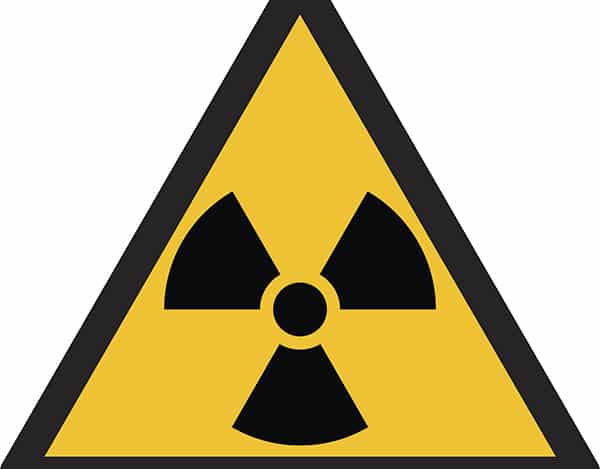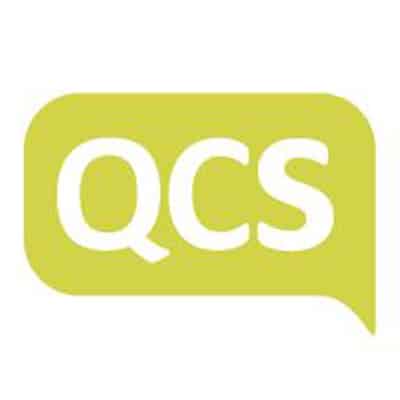Introduction
In the social care sector, the most common use of ionising radiation is within hospitals and dentistry in the form of x-rays. Commonly used to check the condition of teeth, bone structures or the formation of cancers, it has many uses and if used correctly has significant health benefits through diagnosis and appropriate treatments. Those who use equipment which transmits ionising radiation have to be professionally qualified, know the risks and how to manage them safely. This is a regulated activity both in terms of CQC requirements and health and safety. Knowing how to manage such treatments and procedures which protect both professionals and patients is essential for the safety of all.
What is Ionising Radiation?
There are a number of complex definitions to explain Ionising Radiation. The World Health Organisation has one of the simplest to understand and explains it as:
“Ionizing radiation is radiation with enough energy so that during an interaction with an atom, it can remove tightly bound electrons from the orbit of an atom, causing the atom to become charged or ionized.”
The HSE defines it as:
“Ionising radiations occurs as either electromagnetic rays (such as X-rays and gamma rays) or particles (such as alpha and beta particles). It occurs naturally (e.g. radon gas) but can also be produced artificially.”
So ionising radiation can both occur naturally or artificially. Radiation comes in different forms. However, rather than a scientific discussion on ionising radiation, what is important are the ways in which it is used safely and what the law requires.
What are my Responsibilities?
The HSE has produced a guidance document HSG223 which refers to the requirements of medical exposure to Ionising Radiation. On page 6 it requires:
The principles of radiation protection are that:
- medical exposure to ionising radiation should only be carried out if it is justified; and
- the level of exposure must be restricted so far as is reasonably practicable in line with the intended clinical purpose.
Listed are five key requirements:
You are responsible for the medical exposure aspects of IRR99 and IR(ME)R 2000 in the following five key areas:
- General procedures
- Policy on medical equipment
- Quality assurance programmes
- Training of employees and
- Dealing with incidents
It is strongly advised that HSG223 is read in conjunction with the article as it is specific to the health and social care sector. It defines what is required, what to notify the HSE about and how to notify the HSE, risk assessments, safe operating levels, emergency planning etc.
Dealing with emergency planning would be part of a risk assessment and is covered by The Radiation (Emergency Preparedness and Public Information) Regulations 2001. This is about having plans in place for emergencies, the testing of plans and reviewing them to ensure they are effective etc.
What Does the Law Require me to do?
Yes, there are the general duties of The Health and safety at Work Act 1974, sections 2 & section 3 regarding safe plant, safe access, staff training and welfare facilities etc.
Currently, the key piece of legislation is The Ionising Radiation Regulations 1999 which outlines duties under the regulations section 4 .
There is a requirement under section 5:
- Subject to paragraph (2), a radiation employer shall not, except in accordance with a prior authorisation granted by the Executive in writing for the purposes of this paragraph, carry out the following practices—
(a) the use of electrical equipment intended to produce x-rays for the purpose of—
(iv) “the exposure of persons for medical treatment;”
So, work requiring the use of Ionising Radiation (ie: x-rays) will require notification to the HSE before such practices can occur. The requirement to notify the HSE of your intention to work with Ionising Radiation must be at least 28 days before you start operating. Without approval, you cannot use Ionising Radiation treatments.
There are specific requirements for the safety of expectant or breastfeeding mothers as provided in the HSE guidance document INDG334. For all pregnant mothers, there is a requirement for the employer to carry out with the mother, a specific risk assessment to protect both mother and unborn baby and also mothers who are breastfeeding.
Is the Law Changing?
The New Ionising Radiation Regulations 2017 (IRR17) came into force on 1st January 2018 and thus replaced the current regulations. The HSE has produced a draft copy of the new ACoP which you can access at http://www.hse.gov.uk/pubns/books/l121.htm.
What’s Changed and How Does it Affect me?
The biggest change is how employers notify the HSE of their work with ionising radiation. This notification applies to all employers not just those new to the requirements of the regulations. The HSE requires you to:
- notify
- register
- get consent – you may need more than one
You’ll need to apply even if you’ve previously notified us that you work with ionising radiation. If you’ve previously notified us you must apply by 5 February 2018.
For more details on the registration fees and levels of risk please see http://www.hse.gov.uk/radiation/ionising/notification-process.htm.
Summary:
- Ionising Radiation is a regulated activity which needs to be notified to the HSE at least 28 days prior to using the material
- There is a requirement to make an assessment of risk
- There is a requirement to ensure your practice is safe for staff and patients who receive treatment (ie: x-rays)
- There is a requirement to have emergency plans in place and to routinely test them to ensure they are fit for purpose
- There is a requirement for all staff involved in Ionising Radiation treatments and their application to be competent and receive ongoing training
- There are also health monitoring requirements to ensure that no staff are exposed to excessive levels and that expectant or breastfeeding mothers are protected
References:
- What is Ionising Radiation (WHO): http://www.who.int/ionizing_radiation/about/what_is_ir/en/
- Ionising Radiation (HSE): http://www.hse.gov.uk/radiation/ionising/index.htm
- The regulatory requirements for exposure to Ionising Radiation (HSG223) (HSE): http://www.hse.gov.uk/pubns/priced/hsg223.pdf
- Working safely with ionising radiation – Guidelines for expectant and breastfeeding mothers (INDG334) (HSE): http://www.hse.gov.uk/pubns/indg334.pdf
- Work with ionising radiation ACoP L121 draft (HSE): http://www.hse.gov.uk/pubns/priced/l121.pdf
- Work with ionising radiation: new notification process: http://www.hse.gov.uk/radiation/ionising/notification-process.htm
- The Ionising Radiation Regulations 1999
- The Radiation (Emergency Preparedness and Public Information) Regulations 2001
- The Ionising Radiation (Medical Exposure) Regulations 2000







